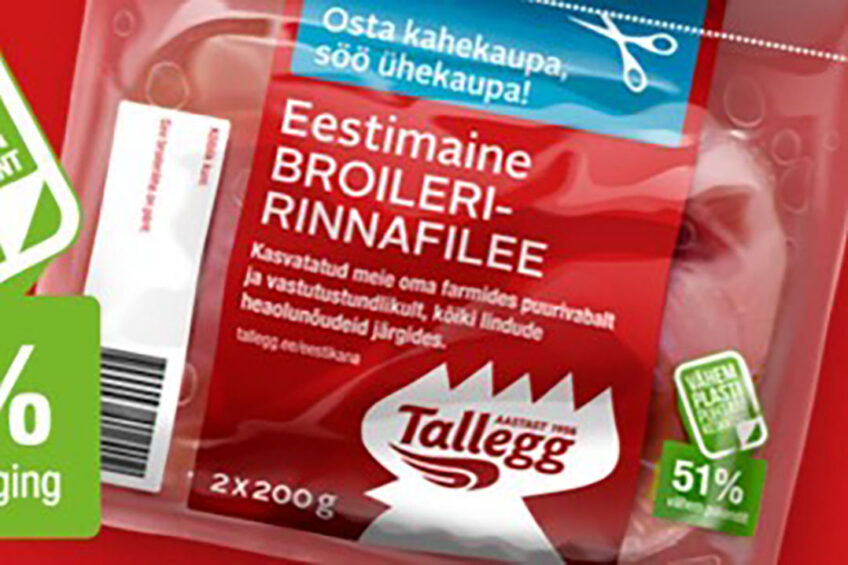Ukraine war sparks poultry shortage in Estonia

The Russian invasion of Ukraine has caused a price hike in the Estonian poultry market, local news outlet ERR reported.
As explained by market participants, all poultry imports from Ukraine, Belarus, and Russia have ceased. In addition, concerns are looming over a sharp rise in prices of feedstuff as Ukraine grain exports by sea remain blocked.
Nearly 60% of the Estonian demand for poultry meat is met by Talleg, the country’s largest producer. Small poultry farms account for a few additional percentage, but the rest is imported from Latvia, Lithuania, and Poland, as well as from the post-Soviet space. The picture is similar with chicken eggs – 38% of which Estonia imports, ERR estimated.
Broiler meat production in Estonia has not been hindered by the Ukraine war, though the rise in the cost of feed grain has driven prices up by 15%, said Markus Kirsberg, commercial director of HKScan, owner of Tallegg’s trademark.
“Our production volumes are stable. As for the availability of our competitors’ goods, naturally, the events in Ukraine have had a negative impact. Today, we clearly see an increase in prices in the raw materials market. First of all, this impacts chicken meat. Following the autumn harvest, another wave of rise in prices [of broiler meat] is inevitable if the grain prices continue going up,” Kirsberg said.
“We are talking about the ratio of demand and consumption. If a product disappears, prices rise,” he added.
No export plans
The Ukraine war has stopped supplies of poultry meat from Ukraine, Belarus, and Russia, not only to the Baltic region but also to Germany. Kirsberg stated that Tallegg exports some products to Latvia. Though export prices in Western countries may seem attractive, the company has no intention to fill the empty shelves in Europe.
“Of course, we have a responsibility to the domestic market. In the name of short-term profit, we will not change long-term plans,” he said.
Budget products disappear
Sirje Potisepp, head of the Estonian Food Industry Union, also warned that Estonia cannot produce chicken meat and eggs in the required quantities. Potisepp added that another part of the problem is associated with the fact that the fighting countries used to export cheap products to the European market.
“Lower-price [products] came from Ukraine and Russia. There are lower production costs, lower wages, and higher availability of raw materials,” Potisepp said. “We understand that the trade flows that were maintained for decades were crippled, in fact, in a day. Prices rise on everything because of the war”.












